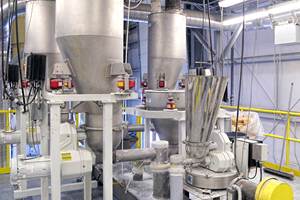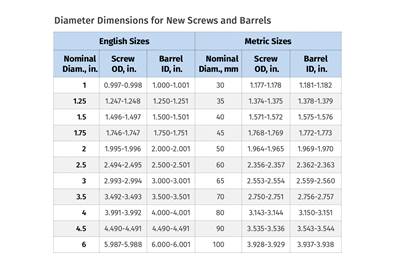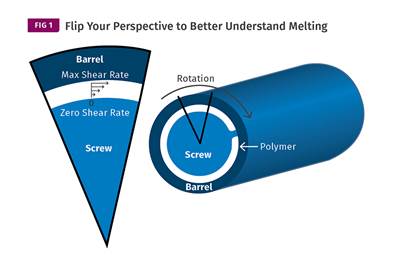IBM Tackles Chemical Recycling of Plastics From Post-Consumer PC (Think CDs) to a Thermoset
Jeannette Garcia, polymer chemist at IBM Research, details her research into chemical recycling of plastics for monomer recovery.
Jeannette Garcia is a polymer chemist at IBM Research and her inquiries are focused on the rational design of new polymers and materials through sustainable methods, targeting recyclable materials with mechanical and thermal properties in combinations not previously accessible. She wrote a blog in 2017 detailing some of her research in this area. I checked in with Garcia to see what she’s working on now:
Q: What are some of your key findings with plastics recycling?
A: At IBM, we've worked on chemical recycling of plastics for a number of different applications and polymer types. I talk in my blog about the work that Jim Hedrick in collaboration with Bob Waymouth (Stanford U) and their teams did before my arrival at IBM on the depolymerization of PET with organic catalysts. I found this work to be inspiring, and I began to think of polymers (plastics) as large molecules that could be reacted in the correct environment. Thus, we began to look at other types of materials that could be chemically degraded selectively back to monomer for re-polymerization. This carried a unique set of challenges: solubility of materials was one of them that needed to be addressed.
In the case of chemical recycling, we found that certain chemical environments were effective to react with the surface of polymers and continue reacting with the plastic from the surface on the outside and inwards. An example was reacting e-waste (CDs, which are primarily polycarbonate) as a masked/latent monomer source for the production of polysulfone. We used potassium carbonate as a catalyst in this case that acted to break down the CD material into pieces which could react with another monomer and polymerize.
An example of chemical recycling of an intractable material was illustrated by chemical recycling of polyhexahydrotriazines (PHTs), a polymer that we developed in our lab. In the case of recycling, we also applied a dilute sulfuric acid solution to digest a thermoset in which the crosslinks in the material could be hydrolyzed back to the monomer starting material.
Q: Regarding the PC recycling project, is this discovery something that you can see being used on a wider scale? What are some of the challenges in working with PC for recycling?
A: Yes. In my opinion, this could be a scaled process. The key idea here would be to used ground-up CDs, DVDs, or other polycarbonate waste (we've talked about iPhone shells, football helmets, airplane windshields, etc.) as a drop-in replacement for BPA. Then polymers that use BPA as a monomer, such as polyimides and polysulfone could be synthesized directly from the waste input. The reaction on small scale was robust (the metal foil layer in the CD didn't impact the reaction, for example) and clean. The polysulfone was isolated just by precipitating into water or methanol and filtering.
Q: At the Global Plastics Summit in 2017 , you mentioned that you’re working on designing catalysts that can break down polyolefin and materials such as foams and composites, can you give any more detail about this?
A: We've looked a bit into recycling of composites with PHTs that we developed in our labs and we are inspired by the early results. We have observed reversion of the polymer matrix resin on small scale in our labs. Other academic groups have used PHTs as the matrix resin for composites and showed that it was completely recyclable. They also characterized the surface of the filler to show that the filler itself could also be recycled after this process, which is very exciting!
Related Content
Clothing Reseller Finds Recycling Pathway
A partnership between ThredUp and Azek will recycle clothing bags to composite deck products.
Read MoreReworking Off-Spec Material? Add Some Science to the Mix
Reworking off-specification material and low-demand material is good for the compounder and good for the environment. Here’s how to make sure it’s good for the customer too.
Read MoreEnergy Company Plans to Feed Recycling Scrap Into Fuel Production
Clean Planet Energy reaches agreement with KW Plastics to Feed its Low-Sulfur Fuel Plants
Read MoreInside the Florida Recycler Gearing Up to Take on Scrap at NPE2024
Hundreds of tons of demonstration products will be created at NPE2024 next spring. Commercial Plastics Recycling strives to recycle all of it.
Read MoreRead Next
Troubleshooting Screw and Barrel Wear in Extrusion
Extruder screws and barrels will wear over time. If you are seeing a reduction in specific rate and higher discharge temperatures, wear is the likely culprit.
Read MoreUnderstanding Melting in Single-Screw Extruders
You can better visualize the melting process by “flipping” the observation point so that the barrel appears to be turning clockwise around a stationary screw.
Read MorePeople 4.0 – How to Get Buy-In from Your Staff for Industry 4.0 Systems
Implementing a production monitoring system as the foundation of a ‘smart factory’ is about integrating people with new technology as much as it is about integrating machines and computers. Here are tips from a company that has gone through the process.
Read More












.png;maxWidth=300;quality=90)













.png;maxWidth=970;quality=90)